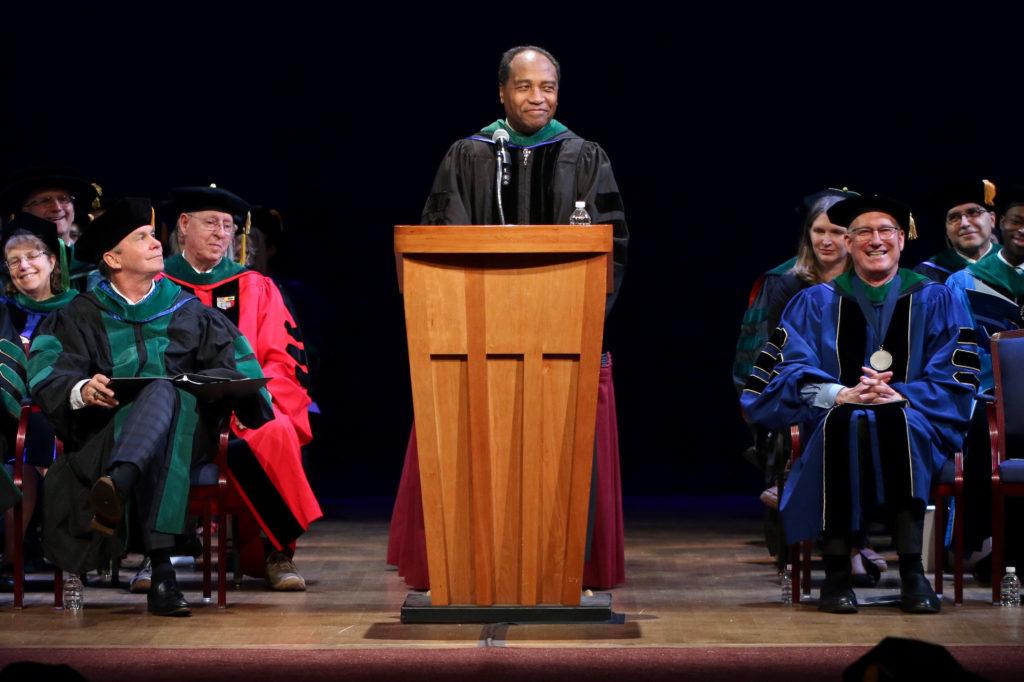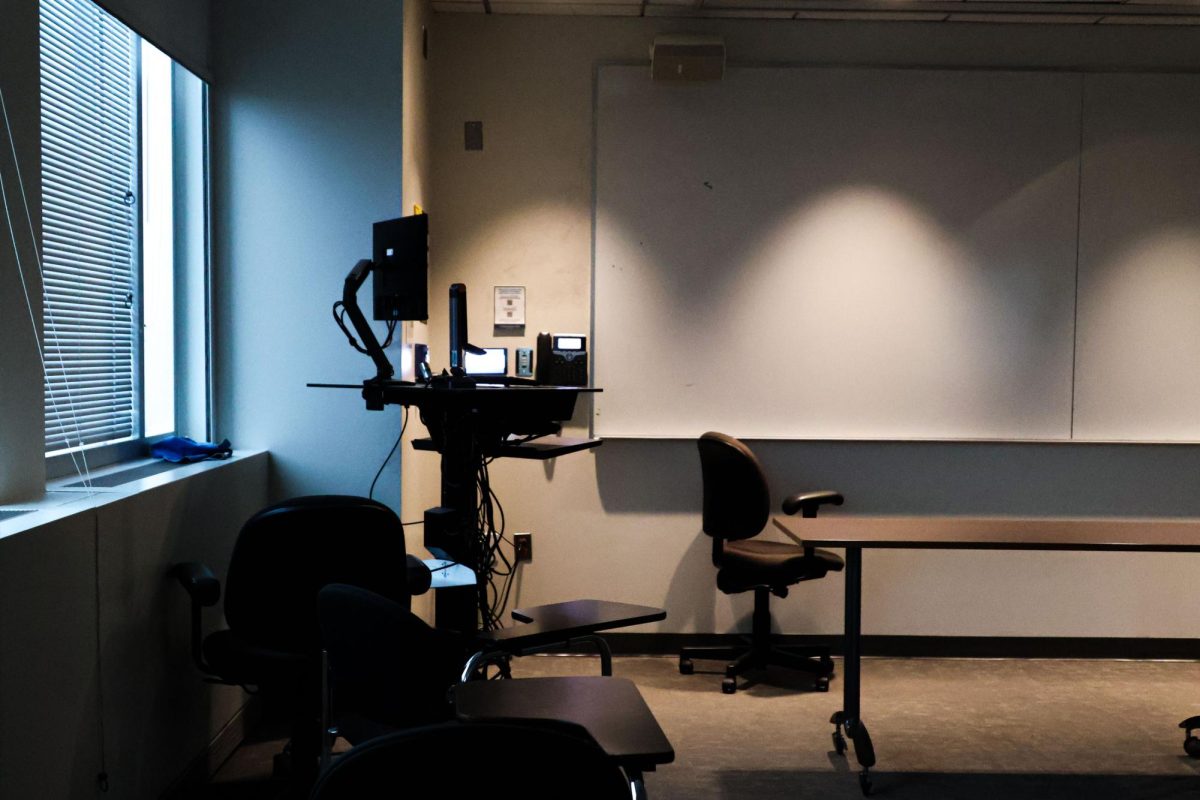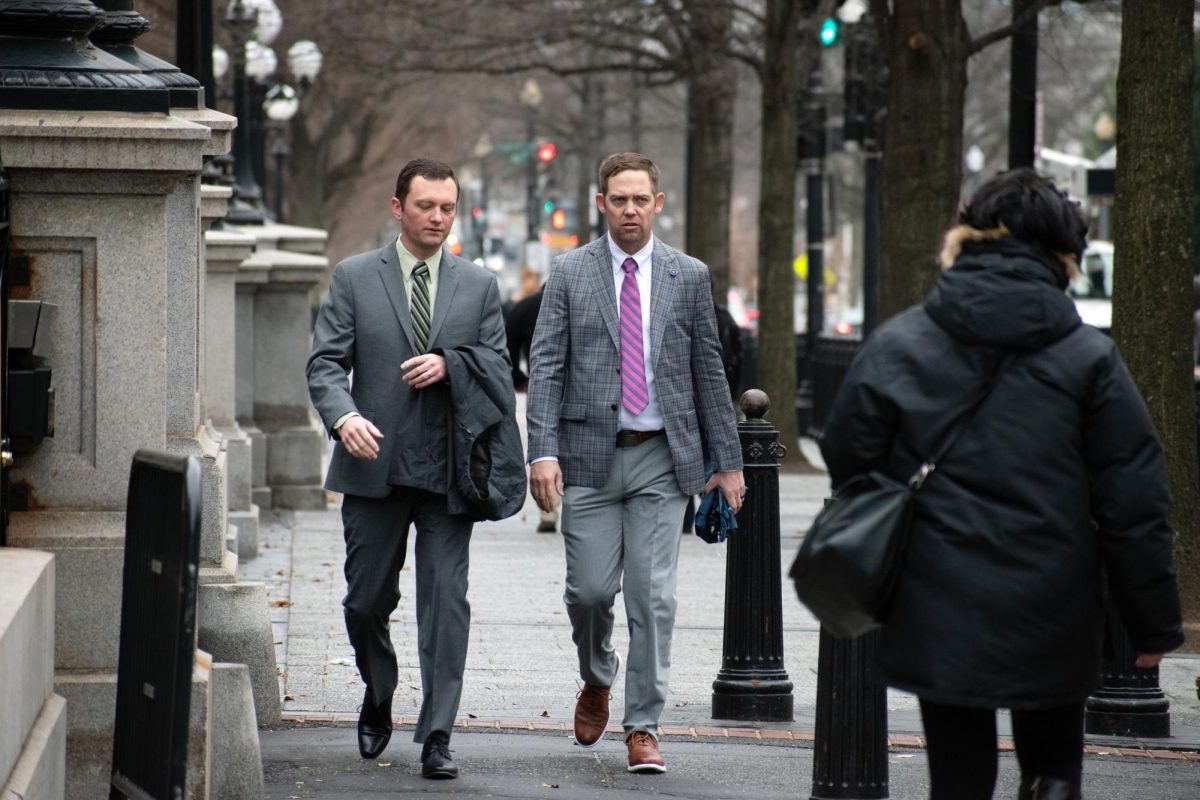Hundreds of friends and family filled Lisner Auditorium to watch more than 150 students in the School of Medicine and Health Sciences receive diplomas and hoods to become doctors Sunday.
At the ceremony, Griffin Rodgers – the director of the National Institute of Diabetes and Digestive and Kidney Diseases – shared five lessons from his career, including the importance of collaboration, following one’s passions and learning outside of school.
Raymond Lucas, the associate dean for faculty affairs and professional development, also recognized new emeritus faculty at the ceremony.
1. Technological change in the field of medicine
Rodgers opened his remarks citing studies that demonstrate the speed, accuracy and precision of diagnoses from artificial intelligence and deep learning programs. He said the invention of the smartphone, email and internet would be “nothing in comparison” to changes graduates will encounter.
But Rodgers added that the role of doctors would adapt in response to the introduction of artificial intelligence because “actual human intelligence” is necessary to operate the programs properly.
“What you need to do is apply your experience, good judgment, your intuition, but most importantly, your one-on-one interactions with your patients to tell AI what it should know,” he said.
Rodgers later said precision medicine – a model of treatment that specializes care on the individual level – will be introduced as the Class of 2018 pursues their careers, allowing them to take part in another significant technological innovation.
[gwh_image id=”1058709″ credit=”Donna Armstrong | Contributing Photo Editor” align=”none” size=”embedded-img”]A medical school graduate, accompanied by his two daughters, receives his doctoral hood at the School of Medicine and Health Sciences celebration Sunday afternoon.[/gwh_image]
“You will be on the cutting edge of precision medicine,” he said. “This is really an exciting time to become a physician.”
2. The importance of social justice in health sciences
Rodgers also shared a lesson that science can be a powerful tool for social justice and that social justice can be a powerful tool for health. He said 80 percent of increased life expectancy is due to social determinants of health, such as income, education and nutrition.
Rodgers recognized that physicians are not always positioned to tackle public health problems, but he urged graduates to fight for social justice issues when they relate to social determinants of health.
“Obviously physicians cannot clean up the environment or end poverty, and certainly not on our own, but when you take that Hippocratic Oath in a few moments, you also accept a moral obligation to be healers,” he said. “Sometimes the healing that we must do must extend beyond the walls of our hospitals, clinics, offices or research centers.”
3. ‘Joy of healing those who seek my care’
Before administering the Hippocratic Oath, Jeffrey Akman, dean of the medical school, took a few moments to speak to the new doctors. He highlighted an inscription on an iron railing above a bench in front of Ross Hall that reads ‘joy of healing those who seek my care.’
“These words and similar words in the Hippocratic Oath speak to our calling as physicians,” he said.
Akman charged the graduates to ask themselves what life was asking of them. He said compassion, integrity and altruism formed the basis of the medical profession.
“Stay in touch with the joy and the gratitude inherent in healing,” he said. “Ultimately, our place among healing professionals is about our love for our fellow man and our capacity to care for each other.”
Like these photos? You can purchase your personal photo from this graduation ceremony online at: www.hatchetphotos.com





